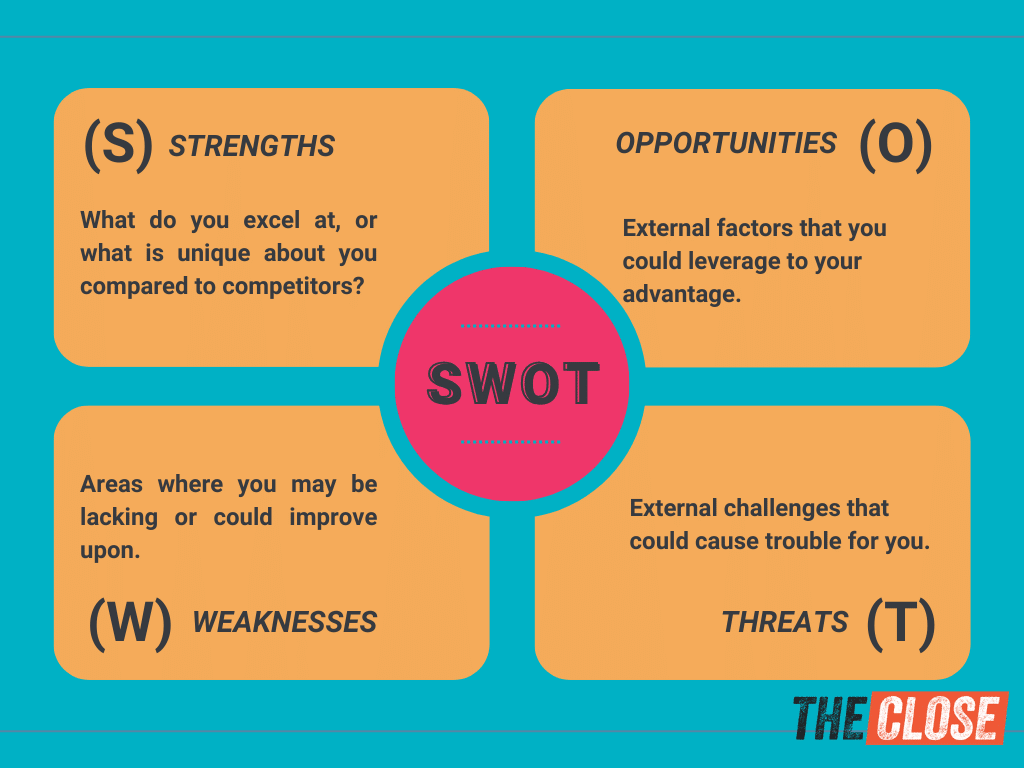- REALTOR® Store
- Real Estate Topics Open submenu Your resource for all things Real Estate. Including Legal, Agent & Broker, and Property Rights Issues.
- Membership Open submenu Whether you’re a new agent or an experienced broker you have access to a wide array of resources designed to help you succeed in today's market.
- Research & Statistics Open submenu Including home buying and selling, commercial, international, NAR member information, and technology. Use the data to improve your business through knowledge of the latest trends and statistics.
- Advocacy Open submenu NAR is widely considered one of the most effective advocacy organizations in the country.
- Education Open submenu NAR and its affiliated Institutes, Societies, and Councils offer a wide selection of real estate training options.
- News & Events Open submenu Stay current on industry issues with daily news from NAR. Network with other professionals, attend a seminar, and keep up with industry trends through events hosted by NAR.
- About NAR Open submenu America's largest trade association, representing 1.5 million+ members, including NAR's institutes, societies, and councils, involved in all aspects of the residential and commercial real estate industries.
- More Open submenu
- The Facts for REALTORS® Resources and updates on NAR’s settlement agreement related to broker commissions.
- Marketing Social Media Sales Tips & Techniques MLS & Online Listings View More
- Being a Real Estate Professional Starting Your Career Being a Broker Being an Agent View More
- Residential Real Estate Condominiums Smart Growth Vacation, Resort, & 2nd Homes FHA Programs View More Home Inspections
- Legal Arbitration & Dispute Resolution Fair Housing Copyright View More
- Commercial Real Estate Commercial research and other tools for practitioners to succeed in commercial real estate.
- Right Tools, Right Now
- All Membership Benefits
- NAR REALTOR Benefits® Bringing you savings and unique offers on products and services just for REALTORS®.
- Directories Complete listing of state and local associations, MLSs, members, and more.
- Dues Information & Payment
- Become a Member As a member, you are the voice for NAR – it is your association and it exists to help you succeed.
- Logos and Trademark Rules Only members of NAR can call themselves a REALTOR®. Learn how to properly use the logo and terms.
- Your Membership Account Review your membership preferences and Code of Ethics training status.
- Highlights & News Get the latest top line research, news, and popular reports.
- Housing Statistics National, regional, and metro-market level housing statistics where data is available.
- Research Reports Research on a wide range of topics of interest to real estate practitioners.
- Presentation Slides Access recent presentations from NAR economists and researchers.
- State & Metro Area Data Affordability, economic, and buyer & seller profile data for areas in which you live and work.
- Commercial Research Analysis of commercial market sectors and commercial-focused issues and trends.
- Statistical News Release Schedule
- Advocacy Issues & News
- Federal Advocacy From its building located steps away from the U.S. Capitol, NAR advocates for you.
- REALTORS® Political Action Committee (RPAC) Promoting the election of pro-REALTOR® candidates across the United States.
- State & Local Advocacy Resources to foster and harness the grassroots strength of the REALTOR® Party.
- REALTOR® Party A powerful alliance working to protect and promote homeownership and property investment.
- Get Involved Now more than ever, it is critical for REALTORS® across America to come together and speak with one voice.
- All Education & Professional Development
- All NAR & Affiliate Courses Continuing education and specialty knowledge can help boost your salary and client base.
- Code of Ethics Training Fulfill your COE training requirement with free courses for new and existing members.
- Continuing Education (CE) Meet the continuing education (CE) requirement in state(s) where you hold a license.
- Designations & Certifications Acknowledging experience and expertise in various real estate specialties, awarded by NAR and its affiliates.
- Library & Archives Offering research services and thousands of print and digital resources.
- Commitment to Excellence (C2EX) Empowers REALTORS® to evaluate, enhance and showcase their highest levels of professionalism.
- NAR Academy at Columbia College Academic opportunities for certificates, associates, bachelor’s, and master’s degrees.
- NAR Newsroom Official news releases from NAR.
- REALTOR® Magazine
- Blogs Commentary from NAR experts on technology, staging, placemaking, and real estate trends.
- Newsletters Stay informed on the most important real estate business news and business specialty updates.
- NAR NXT, The REALTOR® Experience
- REALTORS® Legislative Meetings
- AE Institute
- Leadership Week
- Mission, Vision, and Diversity & Inclusion
- Code of Ethics
- Leadership & Staff National, state & local leadership, staff directories, leadership opportunities, and more.
- Committee & Liaisons
- History Founded as the National Association of Real Estate Exchanges in 1908.
- Affiliated Organizations
- Strategic Plan NAR’s operating values, long-term goals, and DEI strategic plan.
- Governing Documents Code of Ethics, NAR's Constitution & Bylaws, and model bylaws for state & local associations.
- Awards & Grants Member recognition and special funding, including the REALTORS® Relief Foundation.
- NAR's Consumer Outreach
- Top Directories Find a Member Browse All Directories Find an Office Find an Association NAR Group and Team Directory Committees and Directors
- By Role Broker Association Executive New Member Student Appraiser State & Local Volunteer Leader
- By Specialty Commercial Global Senior Market Short Sales & Foreclosures Land Green
- Multimedia Infographics Videos Quizzes
- Video Series First-Time Buyer Level Up Window to the Law Next Up: Commercial New AE Webinar & Video Series
- Podcasts Drive With NAR Real Estate Today The Advocacy Scoop Center for REALTOR® Development
- Programs Fair Housing Safety Leading with Diversity Good Neighbor

- The Facts for REALTORS® Resources and updates on NAR’s settlement agreement related to broker commissions. Close
- Social Media
- Sales Tips & Techniques
- MLS & Online Listings
- Starting Your Career
- Being a Broker
- Being an Agent
- Condominiums
- Smart Growth
- Vacation, Resort, & 2nd Homes
- FHA Programs
- Home Inspections
- Arbitration & Dispute Resolution
- Fair Housing
- Commercial Real Estate Commercial research and other tools for practitioners to succeed in commercial real estate. Close

- NAR REALTOR Benefits® Bringing you savings and unique offers on products and services just for REALTORS®. Close
- Directories Complete listing of state and local associations, MLSs, members, and more. Close
- Become a Member As a member, you are the voice for NAR – it is your association and it exists to help you succeed. Close
- Logos and Trademark Rules Only members of NAR can call themselves a REALTOR®. Learn how to properly use the logo and terms. Close
- Your Membership Account Review your membership preferences and Code of Ethics training status. Close

- Highlights & News Get the latest top line research, news, and popular reports. Close
- Housing Statistics National, regional, and metro-market level housing statistics where data is available. Close
- Research Reports Research on a wide range of topics of interest to real estate practitioners. Close
- Presentation Slides Access recent presentations from NAR economists and researchers. Close
- State & Metro Area Data Affordability, economic, and buyer & seller profile data for areas in which you live and work. Close
- Commercial Research Analysis of commercial market sectors and commercial-focused issues and trends. Close

- Federal Advocacy From its building located steps away from the U.S. Capitol, NAR advocates for you. Close
- REALTORS® Political Action Committee (RPAC) Promoting the election of pro-REALTOR® candidates across the United States. Close
- State & Local Advocacy Resources to foster and harness the grassroots strength of the REALTOR® Party. Close
- REALTOR® Party A powerful alliance working to protect and promote homeownership and property investment. Close
- Get Involved Now more than ever, it is critical for REALTORS® across America to come together and speak with one voice. Close

- All NAR & Affiliate Courses Continuing education and specialty knowledge can help boost your salary and client base. Close
- Code of Ethics Training Fulfill your COE training requirement with free courses for new and existing members. Close
- Continuing Education (CE) Meet the continuing education (CE) requirement in state(s) where you hold a license. Close
- Designations & Certifications Acknowledging experience and expertise in various real estate specialties, awarded by NAR and its affiliates. Close
- Library & Archives Offering research services and thousands of print and digital resources. Close
- Commitment to Excellence (C2EX) Empowers REALTORS® to evaluate, enhance and showcase their highest levels of professionalism. Close
- NAR Academy at Columbia College Academic opportunities for certificates, associates, bachelor’s, and master’s degrees. Close

- NAR Newsroom Official news releases from NAR. Close
- Blogs Commentary from NAR experts on technology, staging, placemaking, and real estate trends. Close
- Newsletters Stay informed on the most important real estate business news and business specialty updates. Close

- Leadership & Staff National, state & local leadership, staff directories, leadership opportunities, and more. Close
- History Founded as the National Association of Real Estate Exchanges in 1908. Close
- Strategic Plan NAR’s operating values, long-term goals, and DEI strategic plan. Close
- Governing Documents Code of Ethics, NAR's Constitution & Bylaws, and model bylaws for state & local associations. Close
- Awards & Grants Member recognition and special funding, including the REALTORS® Relief Foundation. Close

- Find a Member
- Browse All Directories
- Find an Office
- Find an Association
- NAR Group and Team Directory
- Committees and Directors
- Association Executive
- State & Local Volunteer Leader
- Senior Market
- Short Sales & Foreclosures
- Infographics
- First-Time Buyer
- Window to the Law
- Next Up: Commercial
- New AE Webinar & Video Series
- Drive With NAR
- Real Estate Today
- The Advocacy Scoop
- Center for REALTOR® Development
- Leading with Diversity
- Good Neighbor

Writing a Business Plan
Writing a business plan may seem a daunting task as there are so many moving parts and concepts to address. Take it one step at a time and be sure to schedule regular review (quarterly, semi-annually, or annually) of your plan to be sure you on are track to meet your goals.

Why Write a Business Plan?
Making a business plan creates the foundation for your business. It provides an easy-to-understand framework and allows you to navigate the unexpected.
Quick Takeaways
- A good business plan not only creates a road map for your business, but helps you work through your goals and get them on paper
- Business plans come in many formats and contain many sections, but even the most basic should include a mission and vision statement, marketing plans, and a proposed management structure
- Business plans can help you get investors and new business partners
Source: Write Your Business Plan: United States Small Business Association
Writing a business plan is imperative to getting your business of the ground. While every plan is different – and most likely depends on the type and size of your business – there are some basic elements you don’t want to ignore.
NAR Library & Archives has already done the research for you. References (formerly Field Guides) offer links to articles, eBooks, websites, statistics, and more to provide a comprehensive overview of perspectives. EBSCO articles ( E ) are available only to NAR members and require the member's nar.realtor login.
Defining Your Mission & Vision
Writing a business plan begins by defining your business’s mission and vision statement. Though creating such a statement may seem like fluff, it is an important exercise. The mission and vision statement sets the foundation upon which to launch your business. It is difficult to move forward successfully without first defining your business and the ideals under which your business operates. A company description should be included as a part of the mission and vision statement. Some questions you should ask yourself include:
- What type of real estate do you sell?
- Where is your business located?
- Who founded your business?
- What sets your business apart from your competitors?
What is a Vision Statement ( Business News Daily , Jan. 16, 2024)
How to Write a Mission Statement ( The Balance , Jan. 2, 2020)
How to Write a Mission Statement pdf ( Janel M. Radtke , 1998)
Using a SWOT Analysis to Structure Your Business Plan
Once you’ve created a mission and vision statement, the next step is to develop a SWOT analysis. SWOT stands for “Strengths, Weaknesses, Opportunities, and Threats.” It is difficult to set goals for your business without first enumerating your business’s strengths and weaknesses, and the strengths and weaknesses of your competitors. Evaluate by using the following questions:
- Do you offer superior customer service as compared with your competitors?
- Do you specialize in a niche market? What experiences do you have that set you apart from your competitors?
- What are your competitors’ strengths?
- Where do you see the market already saturated, and where are there opportunities for expansion and growth?
Strength, Weakness, Opportunity, and Threat (SWOT) ( Investopedia , Oct. 30, 2023)
How to Conduct a SWOT Analysis for Your Small Business ( SCORE , Apr. 28, 2022)
SWOT Analysis Toolbox ( University of Washington )
Setting Business Goals
Next, translate your mission and vision into tangible goals. For instance, if your mission statement is to make every client feel like your most important client, think about the following:
- How specifically will you implement this?
- Do you want to grow your business?
- Is this growth measured by gross revenue, profit, personnel, or physical office space?
- How much growth do you aim for annually?
- What specific targets will you strive to hit annually in the next few years?
Setting Business Goals & Objectives: 4 Considerations ( Harvard Business School , Oct. 31, 2023)
What are Business Goals? Definition, How To Set Business Goals and Examples ( Indeed , Jul. 31, 2023)
Establishing a Format
Most businesses either follow a traditional business plan format or a lean startup plan.
Traditional Business Plan
A traditional business plan is detailed and comprehensive. Writing this business plan takes more time. A traditional business plan typically contains the following elements:
- Executive Summary
- Company description
- Market analysis
- Organization and management
- Service or product line
- Marketing and sales
- Funding request
- Financial projections
Lean Startup Plan
A lean startup plan requires high-level focus but is easier to write, with an emphasis on key elements. A lean startup plan typically contains the following elements:
- Key partnerships
- Key activities
- Key resources
- Value proposition
- Customer relationships
- Customer segments
- Cost structure
- Revenue stream
Creating a Marketing Plan
You may wish to create a marketing plan as either a section of your business plan or as an addendum. The Marketing Mix concerns product , price , place and promotion .
- What is your product?
- How does your price distinguish you from your competitors—is it industry average, upper quartile, or lower quartile?
- How does your pricing strategy benefit your clients?
- How and where will you promote your services?
- What types of promotions will you advertise?
- Will you ask clients for referrals or use coupons?
- Which channels will you use to place your marketing message?
Your Guide to Creating a Small Business Marketing Plan ( Business.com , Feb. 2, 2024)
10 Questions You Need to Answer to Create a Powerful Marketing Plan ( The Balance , Jan. 16, 2020)
Developing a Marketing Plan pdf ( Federal Deposit Insurance Corporation )
Forming a Team
Ensuring the cooperation of all colleagues, supervisors, and supervisees involved in your plan is another important element to consider. Some questions to consider are:
- Is your business plan’s success contingent upon the cooperation of your colleagues?
- If so, what specifically do you need them to do?
- How will you evaluate their participation?
- Are they on-board with the role you have assigned them?
- How will you get “buy in” from these individuals?
How to Build a Real Estate Team + 7 Critical Mistakes to Avoid ( The Close , May 17, 2023)
Don’t Start a Real Estate Team Without Asking Yourself These 8 Questions ( Homelight , Jan. 21, 2020)
Implementing a Business Plan and Reviewing Regularly
Implementation and follow-up are frequently overlooked aspects to the business plan, yet vital to the success of the plan. Set dates (annually, semi-annually, quarterly, or monthly) to review your business plans goals. Consider the following while reviewing:
- Are you on track?
- Are the goals reasonable to achieve, impossible, or too easy?
- How do you measure success—is it by revenue, profit, or number of transactions?
And lastly, think about overall goals.
- How do you plan to implement your business plan’s goals?
- When will you review and refine your business plan goals?
- What process will you use to review your goals?
- What types of quantitative and qualitative data will you collect and use to measure your success?
These items are only a few sections of a business plan. Depending on your business, you may want to include additional sections in your plan such as a:
- Cover letter stating the reasoning behind developing a business plan
- Non-disclosure statement
- Table of contents
How To Write a Business Proposal Letter (With Examples) ( Indeed , Jul. 18, 2023)
How To Implement Your Business Plan Objectives ( The Balance , Aug. 19, 2022)
The Bottom Line
Creating a business plan may seem daunting, but by understanding your business and market fully, you can create a plan that generates success (however you choose to define it).
Real Estate Business Plans – Samples, Instructional Guides, and Templates
9 Steps to Writing a Real Estate Business Plan + Templates ( The Close , Apr. 3, 2024)
How to Write a Real Estate Business Plan (+Free Template) ( Fit Small Business , Jun. 30, 2023)
The Ultimate Guide to Creating a Real Estate Business Plan + Free Template ( Placester )
Write Your Business Plan ( U.S. Small Business Administration )
General Business Plans – Samples, Instructional Guides, and Templates
Business Plan Template for a Startup Business ( SCORE , Apr. 23, 2024)
Guide to Creating a Business Plan with Template (Business News Daily, Mar. 28, 2024)
Nine Lessons These Entrepreneurs Wish They Knew Before Writing Their First Business Plans ( Forbes , Jul. 25, 2021)
How to Write a Business Plan 101 ( Entrepreneur , Feb. 22, 2021)
Books, eBooks & Other Resources
Ebooks & other resources.
The following eBooks and digital audiobooks are available to NAR members:
The Straightforward Business Plan (eBook)
Business Plan Checklist (eBook)
The SWOT Analysis (eBook)
The Business Plan Workbook (eBook)
Start-Up! A Beginner's Guide to Planning a 21st Century Business (eBook)
Complete Book of Business Plans (eBook)
How to Write a Business Plan (eBook)
The Easy Step by Step Guide to Writing a Business Plan and Making it Work (eBook)
Business Planning: 25 Keys to a Sound Business Plan (Audiobook)
Your First Business Plan, 5 th Edition (eBook)
Anatomy of a Business Plan (eBook)
Writing a Business Plan and Making it Work (Audiobook)
The Social Network Business Plan (eBook)
Books, Videos, Research Reports & More
As a member benefit, the following resources and more are available for loan through the NAR Library. Items will be mailed directly to you or made available for pickup at the REALTOR® Building in Chicago.
Writing an Effective Business Plan (Deloitte and Touche, 1999) HD 1375 D37w
Have an idea for a real estate topic? Send us your suggestions .
The inclusion of links on this page does not imply endorsement by the National Association of REALTORS®. NAR makes no representations about whether the content of any external sites which may be linked in this page complies with state or federal laws or regulations or with applicable NAR policies. These links are provided for your convenience only and you rely on them at your own risk.

- Buyer Agent 101
- Listing Agent 101
- Getting Your License
- Open Houses
- Stats + Trends
- Realtor Safety
- Social Media
- Website Marketing
- Referral Marketing
- Property Marketing
- Branding + PR
- Marketing Companies
- Purchasing Leads
- Prospecting
- Paid Advertising
- Generate Listings
- Generate Buyer Leads
- Apps + Software
- Lead Gen Companies
- Website Builders
- Predictive Analytics
- Brokerage Tech
- Building a Brokerage
- Recruiting Agents
- Lead Generation
- Tech Reviews
- Write for Us
All products mentioned at The Close are in the best interest of real estate professionals. We are editorially independent and may earn commissions from partner links.

7 Steps to Writing a Real Estate Business Plan (+ Template)

As a licensed real estate agent in Florida, Jodie built a successful real estate business by combining her real estate knowledge, copywriting, and digital marketing expertise. See full bio

- Do Agents Really Need a Business Plan?
- Write a Real Estate Business Plan in 7 Easy Steps
- Identify Who You Are as a Real Estate Agent
- Analyze Your Real Estate Market
- Identify Your Ideal Client
- Conduct a SWOT Analysis
- Establish Your SMART Goals
- Create Your Financial Plan
- Track Your Progress & Adjust as Needed
- Bringing It All Together
Are you ready to take your business to the next level? I’ve got just the thing to help you— a foolproof real estate business plan. But before you start thinking, “Ugh, not a boring business plan for real estate,” hear me out. I’ve got a template that’ll make the process a breeze. Plus, I’ll walk you through seven easy steps to craft a plan to put you ahead of the game and have you achieve your wildest real estate dreams in no time. Your success story starts now.

Key Takeaways:
- A well-crafted business plan is your roadmap to success. It guides your decisions and keeps you focused on your goals.
- Create a solid plan by defining your mission, vision, and values, analyzing your market and ideal client, conducting a SWOT analysis, setting SMART goals, and creating a financial plan.
- Regularly track your progress, review your key performance indicators (KPIs), stay flexible, and seek accountability to ensure long-term success.
- Remember, your Realtor business plan should evolve with your business. Embrace change and stay focused on your goals to make your real estate dreams a reality.
Do Agents Really Need a Real Estate Business Plan?
Absolutely. Your real estate agent business plan is your roadmap to success. Without it, you risk losing direction and focus in your real estate career.
A well-crafted business plan helps you:
- Understand your current position in the market
- Set clear and achievable goals
- Create a roadmap for success
- Track your progress and performance
- Make informed decisions and adjustments
Think of your real estate business planning as your GPS, guiding you from your current situation to your desired destination. It serves as your North Star, keeping you focused and on track, even in challenging times. Invest the time to create a solid business plan, and you’ll be well-positioned to succeed in your market and achieve your goals. Your future self will appreciate the effort you put in now.
Before we dive into this section, get our real estate business plan template ( click here to go back up to grab it ) and work through it as I explain each section. I’ll give you some direction on each element to help you craft your own business plan.
1. Identify Who You Are as a Real Estate Agent
Let’s start with your “why.” Understanding your purpose for choosing real estate is crucial because it is the foundation for your business plan and guides your decision-making process. Defining your mission, vision, and values will help you stay focused and motivated as you navigate your real estate career.
Mission: Your mission statement defines your purpose for choosing real estate. It clearly states what you’re trying to do, the problem you want to solve, and the difference you want to make.
Ex: Wanda Sellfast’s mission is to empower first-time homebuyers in Sunnyvale, California, to achieve their dream of homeownership and build long-term wealth through real estate.
Vision: Your vision statement focuses on the ultimate outcome you want to achieve for your clients and community.
Ex: Wanda Sellfast’s vision is a Sunnyvale, where everyone has the opportunity to own a home and build a stable, secure future, creating a more inclusive and prosperous community for all.
Values: Your core values are the guiding principles that shape your behavior, decisions, and interactions with clients and colleagues.
Ex: Wanda Sellfast’s core values include:
- Integrity: Being honest, transparent, and ethical in all dealings.
- Dedication: Being devoted to clients’ success and going the extra mile.
- Community: Building strong, vibrant communities and giving back.
Clearly defining your mission, vision, and values lays the foundation for a strong and purposeful real estate business that will help you positively impact your clients’ lives and your community.
2. Analyze Your Real Estate Market
As a real estate pro, you must deeply understand your local market. This knowledge includes knowing key metrics such as average days on market, average price points, common home styles and sizes, and demographic trends. When someone asks about the market, you should be able to confidently roll those numbers off your tongue without hesitation.
To quickly become the local expert, choosing specific farm areas to focus on is crucial. Concentrate your marketing efforts and build your local knowledge in a handful of communities and neighborhoods.
Some places to do research include:
- Your local MLS: Check your hot sheet daily
- Zillow: Check out the Premier Agents who show up in your neighborhood
- Social media: Who is targeting their posts to your area?
- Direct mail: Check your mailbox for flyers and postcards
- Drive by: Drive through your farm areas to see who has signs in yards

Once you’ve identified your target areas, start conducting comparative market analyses (CMAs) to familiarize yourself with the properties and trends in those neighborhoods. That way, you’ll provide accurate insights to your clients and make informed decisions in your business.
Remember to research your competition. Understand what other agents working in the same area are doing, who they’re targeting, and identify any gaps in their services. This understanding will help you differentiate yourself from your competition and better serve your clients’ needs. In our real estate business planning template, I ask you to examine and record:
- Trends: Track key metrics, such as days on market and average sold prices, to stay informed about your specific market.
- Market opportunities: Identify situations where there are more buyers and sellers (or vice versa) in the marketplace so you can better advise your clients and find opportunities for them and your business.
- Market saturation: Recognize areas where there may be an oversupply of certain property types or price points, allowing you to adjust your strategy accordingly.
- Local competition: Analyze your competitors’ strengths, weaknesses, and gaps in their services to identify opportunities for differentiation and possibilities to create a more meaningful impact.
Remember, real estate is hyper-local. While national and state news can provide some context, your primary focus should be on specific needs and trends within your target areas and the clients you want to serve. By thoroughly analyzing your local real estate market, you’ll be well-equipped to make informed decisions, provide valuable insights to your clients, and ultimately build a successful and thriving business.
3. Identify Your Ideal Client
When creating your real estate business plan, it’s crucial to identify your ideal client. You can’t be everything to everyone, no matter how much you think you should. And trust me, you certainly don’t want to work with every single person who needs real estate advice. By focusing on your ideal client, you’ll create a targeted marketing message that effectively attracts the right people to your business—those you want to work with.

Think of your target market as a broad group of people who might be interested in your services, while your ideal client is a specific person you are best suited to work with within that group. To create a detailed profile of your ideal client, ask yourself questions like:
- What age range do they fall into?
- What’s their family situation?
- What’s their income level and profession?
- What are their hobbies and interests?
- What motivates them to buy or sell a home?
- What are their biggest fears or concerns about the real estate process?
Answering these questions will help you create a clear picture of your ideal client, making it easier to tailor your marketing messages and services to meet their needs. Consider using this ideal client worksheet , which guides you through the process of creating a detailed client avatar. This will ensure you don’t miss any important aspects of their profile, and you can refer back to it as you develop your marketing plan .
By incorporating your ideal client into your overall business plan, you’ll be better equipped to make informed decisions about your marketing efforts, service offerings, and growth strategies. This clarity will help you build stronger relationships with your clients, stand out from the competition, and ultimately achieve your real estate business goals.
4. Conduct a SWOT Analysis
If you want to crush it in this business, you’ve got to think like an entrepreneur. One of the best tools in your arsenal is a SWOT analysis. It sounds ominous, but don’t worry, it’s actually pretty simple. SWOT stands for Strengths, Weaknesses, Opportunities, and Threats. It’s all about taking a good, hard look at yourself and your business.

By conducting a SWOT analysis as part of your real estate business plan, you’ll have a clear picture of your current situation and your future goals. And don’t just do it once and forget about it—review and update it regularly to stay on top of your game.
5. Establish Your SMART Goals
If you want to make it big in real estate, setting goals is an absolute must . But not just any goals— I’m talking about SMART goals . SMART stands for Specific , Measurable , Achievable, Relevant , and Time-bound . It’s like a recipe for success, ensuring your goals are clear, realistic, and have a deadline.
Your SMART goals are an integral part of your overall business plan for real estate. They should be stepping stones to help you achieve your long-term vision and mission. So, analyze your SWOT analysis, ideal client, and market, and craft goals that will help you dominate your niche.
Example Smart Goal: Close 10 transactions in the next quarter.
Make sure to provide as many details as possible behind your goals. Don’t just say, “I want to sell more houses.” That’s too vague. In the example above, the goal is specific: “close 10 transactions.”
If you can’t measure your progress, how will you know if you’re crushing it or falling behind? Ensure your goals have numbers attached to track your success or see where you need to focus more energy. “Close 10 transactions” has a specific number, so you have a way to measure your progress.
I know you’ve got big dreams for your real estate business , but Rome wasn’t built in a day. Set goals that stretch you beyond your comfort zone but are still achievable. This way, you’ll gain confidence, build momentum, and push yourself to new heights. Closing 10 transactions in a quarter is a lofty goal, but it’s still achievable. Your goals should stretch you but still be within your reach.
Relevant goals are the ones that actually move the needle for your business. Sure, becoming the next TikTok sensation might be a lot of fun, but unless TikTok generates most of your clients, it won’t help you close more deals. Your goals should be laser-focused on the activities and milestones that will help you grow your real estate career. In the example above, the goal is specifically related to real estate.
Deadlines are your friend. Without a timeline, your goals are just wishes. Give yourself a precise end date and work backward to create a plan of action. In the example, the deadline for achieving the goal is the end of the current quarter. If you don’t achieve the goal, you can evaluate where the shortfall was and reset for the next quarter.
“Setting goals is the first step in turning the invisible into the visible.”

Tony Robbins
Remember, just like your SWOT analysis, your goals aren’t set in stone. Review and adjust them regularly to stay on track and adapt to business and market changes.
6. Create Your Financial Plan
Financial planning might not be your idea of a good time, but this is where your real estate business plan really comes together. Thanks to all the research and strategizing you’ve done, most of the heavy lifting is already done. Now, it’s just a matter of plugging in the numbers and ensuring everything adds up.
In this real estate business plan template section, you’ll want to account for all your operating expenses. That means everything from your marketing budget to your lead generation costs. Don’t forget about the little things (like printer ink, file folders, thank you cards, etc.)—they might seem small, but they can add up quickly. Some typical expenses to consider include:
- Marketing and advertising (business cards, website , social media ads )
- Lead generation ( online leads , referral fees, networking events )
- Office supplies and equipment (computer, printer, software subscriptions )
- Transportation (gas, car maintenance, parking)
- Professional development (training, courses, conferences )
- Dues and memberships (MLS fees, association dues)
- Insurance (errors and omissions, general liability)
- Taxes and licenses (business licenses, self-employment taxes)
Once you’ve figured out your expenses, it’s time to reverse-engineer the numbers and determine how many deals you need to close each month to cover your costs. If you’re just starting out and don’t have a track record to go off of, no worries! This planning period allows you to set a budget and create a roadmap for success.

Pro tip: Keep your personal and business finances separate. Never dip into your personal cash for business expenses. Not only will it make tax time a nightmare, but it’s way too easy to blow your budget without even realizing it.
If you’re evaluating your starting assets and realizing they don’t quite match your startup costs, don’t panic. This new insight is just a sign that you must return to the drawing board and tweak your strategy until the numbers line up. It might take some trial and error, but getting your financial plan right from the start is worth it.
7. Track Your Progress & Adjust as Needed
You’ve worked hard and created a killer real estate business plan, and you’re ready to take on the world. But remember, your business plan isn’t a one-and-done deal. It’s a living, breathing document that needs to evolve as your business grows and changes. That’s why it’s so important to track your progress and make adjustments along the way.
Here are a few key things to keep in mind:
- Set regular check-ins: Schedule dedicated time to review your progress and see how you’re doing against your goals, whether weekly, monthly, or quarterly.
- Keep an eye on your KPIs: Your key performance indicators (KPIs) are the metrics that matter most to your business. Things like lead generation, conversion rates, and average sales price can give you a clear picture of your performance.
- Celebrate your wins: When you hit a milestone or crush a goal, take a moment to celebrate. Acknowledging your successes will keep you motivated and energized.
- Don’t be afraid to pivot: If something isn’t working, change course. Your real estate business plan should be flexible enough to accommodate new opportunities and shifting market conditions.
- Stay accountable: Find an accountability partner, join a mastermind group, or work with a coach to help you stay on track and overcome obstacles.
“It’s the small wins on the long journey that we need in order to keep our confidence, joy, and motivation alive.”

Brendon Burchard
Remember, your real estate business plan is your roadmap to success. But even the best-laid plans need to be adjusted from time to time. By tracking your progress, staying flexible, and keeping your eye on the prize, you’ll be well on your way to building the real estate business of your dreams.
How do I start a real estate business plan?
Use this step-by-step guide and the downloadable real estate business plan template to map your business goals, finances, and mission. Identify your ideal client so you can target your marketing strategy. Once you’ve completed all the business plan elements, put them into action and watch your real estate business grow.
Is starting a real estate business profitable?
In the most simple terms, absolutely yes! Real estate can be an extremely profitable business if it’s run properly. But you need to have a roadmap to follow to keep track of your spending vs income. It’s easy to lose track of expenses and overextend yourself when you don’t have a set plan.
How do I jump-start my real estate business?
One of the easiest ways to jump-start any business is to set clear goals for yourself. Use this guide and the downloadable template to ensure you have clear, concise, trackable goals to keep you on track.
How do I organize my real estate business?
Start by setting some SMART goals to give yourself a concrete idea of what you see as success. Then, make sure you’re using the right tools—customer relationship manager (CRM), website, digital document signing, digital forms, etc., and make sure you have them easily accessible. Try keeping most of your business running from inside your CRM. It’s much easier to keep everything organized if everything is in one place.
Now, you have a step-by-step guide to creating a real estate business plan that will take your career to the next level. Taking the extra time to map your path to success is an essential step in helping you achieve your goals. Spend the extra time—it’s worth it. Now, it’s time to do the work and make it happen. You’ve got this!
Have you created your real estate business plan? Did I miss any crucial steps? Let me know in the comments!

As a licensed real estate agent in Florida, Jodie built a successful real estate business by combining her real estate knowledge, copywriting, and digital marketing expertise.
51 Comments
Add comment cancel reply.
Your email address will not be published. Required fields are marked *
Related articles
How to get a real estate license in 7 simple steps.
Thinking of becoming a real estate agent? We’re here to guide you through each task related to getting your real estate license, plus gather all of the must-know information for your state.
The CE Shop Review: Pricing, Featured, Pros & Cons
Check out our in-depth look at The CE Shop’s custom-built online platform, its costs, course offerings, pros and cons, and student experiences to see what The CE Shop is getting right—and wrong—to help you decide whether it’s the best real estate education provider for you.
Allied Real Estate Schools: Pricing, Features, Pros & Cons
As an aspiring real estate professional in California, you have tons of options to choose from for your prelicensing education. So does Allied Real Estate Schools' student experience live up to the hype?
Success! You've been subscribed.
Help us get to know you better.
- Skip to primary navigation
- Skip to main content
- Skip to primary sidebar
- Skip to footer
Legal Templates
LegalTemplates Business Business Plan Real Estate
Real Estate Business Plan Template
Download our template and create a business plan for your real estate business!

Updated September 22, 2023 Written by Josh Sainsbury | Reviewed by Brooke Davis
A real estate business plan is as essential as a business plan for any new or existing business. This step-by-step guide will explain how to make a real estate business plan, provide a real estate business plan template for you to work with, and explain how and why each step is necessary for your business plan to be effective.
We also provide links to downloadable templates to help you create your real estate business plan and sample plans to show you the best ways to tailor your plan for any number of real estate business needs.
Whether you seek investors to grow your business or want to track your goals from year to year as your business develops, a carefully crafted plan will help you.

Why You Need a Business Plan for Your Real Estate Business
How to write a business plan for real estate, real estate business plan sample.
The real estate business plan fills several needs. It gives you an outline of your business goals and the direction you want your business to take. It keeps you in line with industry trends. It lets you monitor your annual performance and change your goals as the market changes.
An effective real estate business plan also acts as a financial summary of your business, showing how it stands about your competition and the industry. The business plan acts as a road map for you and a snapshot of your business for any investors or bankers who want to understand your business.
A real estate business plan will help you spot risks and weaknesses early in your business development and help you set realistic goals for your business.
These are known as SMART goals: Specific, Measurable, Achievable, Relevant, and Time-based goals.
Creating a business plan without goals is like starting a journey without a destination. Having a destination without a map means going down many blind alleys, taking unnecessary detours, and wasting time as you frequently need to return and start again.
Your business plan will help you avoid these pitfalls and adjust your course while you travel towards your final goal — a successful real estate business.
You must cover critical topics and include the correct information to ensure your business plan is as effective as possible. Follow our guide to writing a well-formed real estate business plan below.
1. Executive Summary
The executive summary contains an overall review of the rest of the business plan. It should include an outline of your history, your mission statement, and an overview of the rest of the report.
This section will include things like:
- Target clients with a fictional “ideal buyer” persona;
- Target neighborhoods, price ranges, and listings;
- Market overviews and potential threats and opportunities;
- A marketing plan outline.
- Your mission statement. This should include where and how your agency was founded, discuss the legal and financial structure, and stress your dedication to your customers and any special advantages you provide to your target clients.
2. Management Team
If you have a management team or a group that has contributed to the business’s success, summarize their names and contributions.
This section highlights everyone who has been involved in your business.
- Owners, founders, and original managers;
- New management, assigned duties and areas, and specific clients;
- Planned management expansion and anticipated managerial goals.
- Include all information about your managers, names, positions and duties, education and work history, past business successes, and other relevant details. Think of this section as your management team’s biography.
As the business expands, your management team section will be one section that needs constant improvement and updating.
3. Products and Services
Your products and services should be phrased to make you unique in the industry and highlight how you stand out from your competitors. As a real estate business, what do you provide for your clients that others do not? How do your agents compare with your competition?
In real estate, your product is your listing and your brand. What is it that makes your company the one that your target buyer wants to use? In this section, you will highlight the following:
- Your niche market and how you acquire specific listings in your area;
- Your lead generation model and the way you obtain leads that differentiate you from your competitors;
- Your branding. A defining brand can be nebulous, and many firms resort to hiring a brand agent to help them customize and market their brand. You may be a family-friendly agent or specialize in the young professionals market. Determining how you present yourself is critical to your service profile.
4. Customers and Marketing
The customers and marketing section lets you identify your niche within the real estate business and how you intend to reach them.
You defined your ideal customer in your executive summary; now is where you expand on your perfect customer “persona.” A “persona” is the industry name for the imaginary person you sell to.
- Their demographics, age, gender, job, family preference, and income.
- Deal-breakers. What do they have to have in a home? What can they do without?
- Amenities, recreation, entertainment. Does your ideal buyer need dog parks nearby or bike paths? Do they want access to the water or the theater district?
- What type of neighborhood is your ideal buyer looking for? Do they need a school district or prefer to be far from children?
After establishing your ideal customer, you can select the viability of your marketing niche. For instance, is your buyer likely to be a first-time buyer? If so, what percentage of first-time sales were made in your chosen area in the last two years?
The more detailed you can make your Customers and Marketing section, the more you know how your business will likely thrive in your chosen area.
5. SWOT Analysis
Strengths, weaknesses, opportunities, and threats are necessary for every business analysis. In what areas are you and your business strongest, and where do you need improvement?
Investors appreciate a business owner who can accurately pinpoint their good and bad points and demonstrate how to improve.
This analysis should be fact-based, not opinion-based. You should be able to provide statistics and metrics for your and your competitors’ business research. Some things to consider are:
- In what areas of your business plan are you strongest? Are they similar or dissimilar to your nearest competitor’s strengths?
- In what areas are you weakest? Are you weak where your competitors are strongest?
- What opportunities can you exploit in the next six to 12 months? Are these opportunities unavailable to your competitors?
- What threats are you facing in the next year? How can you avoid these threats or turn them into advantages?
By analyzing your business objectively and reviewing all the facts and numbers, you can determine how you will be placed in the next year.
6. Financials
The meat of your business plan is the financials. This includes your expenses, annual income forecast (sales, commissions, or other income), cash flow, and costs. As your business grows, your business plan will include previous years’ financials to track the growth.
Your financials should include, at a minimum:
- Expenses. These include operating expenses, whether you have a physical location or are still in the virtual stage of operations, licensing and permitting, fees and filing costs, and other operating expenses. If you have employees, it will also include payroll.
- The past income portion will track how much you have already made. You should be able to show how many leads you have generated, how many transactions you made, and your income from those efforts.
- Future income is how much you would like to make going forward. You can estimate how many leads are needed per transaction and how many transactions per sale from your past efforts.
- Goals. With this information, you should include your projections for the next year and five-year periods. Presumably, you wish to increase profit over the next five years. You can demonstrate how to achieve these goals using income tracking and market research.
7. Operations
Operations contain the moving parts of your financial projections. This section describes how you intend to reach your business goals in the upcoming year. This section might also include upcoming personnel changes, office expansions, etc.
Real Estate operations can include your projected hours of operation, your action plan for achieving your goals, and your marketing and advertising plan. Initially, this may be somewhat fluid if you do not plan to have set hours of operation or a brick-and-mortar office.
Later, as your business increases, this section will include business hours, open house times, etc.
8. Appendix
If your real estate business plan includes any ancillary documents, such as your Articles of Incorporation or a Business Purchase Agreement , they would be included in the Appendix.
After your first real estate business plan, your previous years’ plans will go into the Appendix so they can be reviewed by potential investors or by your board. You can also include your quarterly statements and other financial documents.
Your Appendix is the section for any documents you want to have that are not essential for your readers’ overall understanding.
Now that you know what goes into your real estate business plan, all that is left for you to do is click on the business plan creation template and begin. Ensure you have all your documentation and research-ready in advance, and the template will provide you with cues as to what information needs to go into which spaces.
After filling in all the blanks, the template will generate a real estate business plan to your specifications.

- Legal Resources
- Partner With Us
- Terms of Use
- Privacy Policy
- Cookie Policy
- Do Not Sell My Personal Information

The document above is a sample. Please note that the language you see here may change depending on your answers to the document questionnaire.
Thank you for downloading!
How would you rate your free template?
Click on a star to rate
- Business plans
Real Estate Business Plan Template
Used 4,872 times
Start off your new real estate business on the right foot by using a real estate business plan template to ensure your goals, visions, and finances are sorted.
e-Sign with PandaDoc

Created by:
[Sender.FirstName] [Sender.LastName]
[Sender.Company]
Prepared for:
[Recipient.FirstName] [Recipient.LastName]
[Recipient.Company]
Executive Summary
[Sender.Company] , located at [Sender.State] , is a new (Add type, i.e., residential, commercial, industrial) real estate brokerage firm specializing in (Add specialty). The company will operate professionally, conveniently located next to [Sender.StreetAddress] [Sender.City] [Sender.PostalCode] . [Sender.Company] is headed by [Sender.FirstName] [Sender.LastName] , (Add important credentials of the Sender).
[Sender.Company] ’s services include:
Listing rentals for landlords.
Assisting tenants in finding rentals.
Selling homes.
Helping buyers find homes.
By serving both renters and homeowners, [Sender.Company] hopes to become a long-term partner with each client rather than part of a one-time transaction.
Business Description
The business is currently being run out of (address).
Since incorporation, the Company has achieved the following milestones:
Found office space and signed Letter of Intent to lease it
Developed the company’s name, logo, and website located at (Enter website)
Hired an interior designer for the decor and furniture layout
Determined equipment and fixture requirements
Began recruiting key employees
Mission Statement
[Sender.Company] ’s long-term goal is to become the number-one name in residential real estate brokerage in terms of the right balance of price and customer service quality.
We seek to do this by ensuring customer satisfaction and developing a loyal and trusting clientele.
The following are a series of steps that will lead to this long-term success. [Sender.Company] expects to achieve the following milestones in the following (Add number) months:
Customer Segments
[Sender.Company] will serve the residents and businesses in (Enter company location).
The area we serve is affluent and has the disposable income/profits required to demand off-premises catering services.
Renters and Potential Renters
Description: Temporary renters or those saving towards a purchase. Some are lifelong renters.
Age Range: _______ (Avg. age: 25)
Unique: Fast apartment turnover rate.
Home Buyers
Description: Mostly newcomers, often from a distance.
Age Range: _______ (Avg. age: 33)
Preferences: Value brokers knowledgeable about both listings and the local real estate market.
Home Sellers
Description: Mostly relocating, some upgrading or downsizing within the community.
Age Range: _______ (Avg. age: 45)
Preferences: Seek brokers skilled in pricing, staging, and negotiation.
Description: Owners renting out space, from professional landlords to those capitalizing on extra space.
Preferences: Value brokers adept at pricing, finding tenants, and handling initial inquiries.
Real Estate Industry Overview
Last year, the U.S. real estate sale and brokerage agencies generated $_______ billion in revenue and employed _______ people.
_______ businesses operated in this market, averaging $_______ per business.
Average employee wage in the industry was $_______.
Economic Significance
Real estate's health is crucial for the American economy.
Key metrics like new home sales, listings, and prices are closely monitored.
Revenue Streams
Brokerage fees, commissions, property management, consulting, and appraisal fees are major revenue sources.
Economies of Scale
Modest economies of scale exist, favoring larger firms, though many remain too small to fully benefit.
Key Players
Major industry players include Realogy, Equity Residential, AIMCO, HomeServices, and RE/MAX.
Products, Programs, and Services
[Sender.Company] will be able to provide clients with the following services:
As [Sender.FirstName] [Sender.LastName] understands, the key to a successful real estate brokerage business is building referrals and a long-term reputation as a trustworthy agent in the community. [Sender.FirstName] [Sender.LastName] will continue to reach out to past clients in future years to answer questions and to continue to develop a relationship.
Marketing Plan
The [sender.company] brand.
The [Sender.Company] brand will focus on the Company’s unique value proposition:
Client-focused residential real estate brokerage services, where the Company’s interests are aligned with the customer
Service built on long-term relationships and personal attention
Big-firm expertise in a small-firm environment
Promotions Strategy
[Sender.Company] will initially invest significant time and energy into contacting potential clients and building an initial client base.
Referral Strategy
Encourage Referrals: [Sender.Company] will incentivize clients for referrals, fostering organic growth.
Strategic Networking: [Sender.Company] will actively network with home contractors, real estate developers, and businesses importing employees, generating qualified leads.
Internet Promotion
SEO and PPC Focus: [Sender.Company] will invest in local SEO and pay-per-click advertising, optimizing website traffic.
Content-Rich Website: The website will showcase [Sender.Company] as a reputable real estate brokerage.
Publications
Key Listings: Properties will be featured in local publications, maximizing exposure.
Targeted Brochures: Brochures will be distributed in locations frequented by potential clients.
Community Engagement: Free seminars will be offered to familiarize residents with [Sender.Company] 's expertise and character.
Pricing Strategy
[Sender.Company] ’s pricing will rely on the standard industry rates to neither be perceived as a luxury nor a discount broker. 3% is the commission on sales and 3% on purchases.
Apartments and other rentals will have fees paid only by the tenants at the standard rate of one month’s rent. By seeking quality clients and maintaining long-term relationships with them, [Sender.Company] will fend off pressure to discount their rates, even in down markets.
Operations Plan
[Sender.Company] will carry out its day-to-day operations primarily on an appointment basis.
[Sender.FirstName] [Sender.LastName] will work as needed, including weekends and prime showing times, and generally take days off on weekdays.
Management Organization
Founder's expertise.
Founder: [Sender.FirstName] [Sender.LastName]
Experience: (Number of years) years as a licensed real estate broker.
Credentials: (Enter credentials)
Specialization: (Specify area of specialization and years of experience)
Achievements
Accolades: (Enter any awards or accolades)
Licensing and Affiliations
License: (Enter state), (Enter other states)
Association Membership: National Association of Realtors
Administrative Support
[Sender.Company] employs (Assistant.Name), an experienced assistant, to handle various administrative duties in the office. (Assistant.Name) has worked with C-level executives and possesses significant administrative experience.
Financial Plan
Revenue and cost drivers.
[Sender.Company] ’s revenues will come primarily from the commissions earned from client real estate sales, purchases, and rental fees. Half of the deals each quarter are expected to be rentals, one-quarter of sales, and one-quarter of purchases.
As with most services, labor expenses will be key cost drivers. [Sender.FirstName] [Sender.LastName] and future brokers will earn a competitive base salary. Furthermore, the costs of transactions are projected to be roughly 40% of regular commission revenue and cover the advertising of listings, travel and supply costs for clients, and other direct costs for each deal.
Moreover, ongoing marketing expenditures are also notable cost drivers for [Sender.Company] .
Capital Requirements and Use of Funds
[Sender.Company] is seeking total funding of (Enter the amount needed) of debt capital to open its office. The capital will be used for funding capital expenditures and location build-out, hiring initial employees, marketing expenses, and working capital.
Specifically, these funds will be used as follows:
Store design/build: $(Enter value)
Working capital: $(Enter value) to pay for marketing, salaries, and lease costs until [Sender.Company] reaches the break-even point
Key Assumptions and Forecasts
The following table reflects the key revenue and cost assumptions made in the financial model.
5 Year Annual Income Statement
5 year annual balance sheet, 5 year annual cash flow statement, confidentiality statement.
The confidential information and trade secrets described above shall remain the exclusive property of the real estate business. They shall not be shared or removed from the premises of the real estate business under any circumstances whatsoever without the express prior written consent of the real estate business.
List any additional documents that might provide more information on your real estate business or operations here.
[Recipient.FirstName] [Recipient.LastName]
Care to rate this template?
Your rating will help others.
Thanks for your rate!
Useful resources
- Featured Templates
- Sales Proposals
- NDA Agreements
- Operating Agreements
- Service Agreements
- Sales Documents
- Marketing Proposals
- Rental and Lease Agreements
- Quote Templates
- Business Proposals
- Agreement Templates
- Purchase Agreements
- Contract Templates

IMAGES
COMMENTS
Learn how to create a business plan for your real estate career, including mission and vision statement, SWOT analysis, goals, marketing plan, and financial projections. Find references and resources from NAR Library & Archives and other sources.
An optimal business plan for real estate agents includes firm goals, but it’s also fluid — you’ll want to update your real estate business plan as you grow and the market evolves. Why agents need a real estate business plan. A real estate business plan allows you to stay current with market trends and ahead of the competition.
Apr 3, 2024 · Learn how to write a real estate business plan in seven easy steps with a free template. Find out how to define your mission, vision, and values, analyze your market and ideal client, set goals, and create a financial plan.
Free Real Estate Business Plan Template PDF Written By: Dave Lavinsky . Dave Lavinsky is the Co-Founder and President of Growthink, a premier business . advisory firm. With over 25 years of experience in business planning, capital raising, and new venture development, Dave has significantly impacted entrepreneurs and small business owners ...
Sep 22, 2023 · After filling in all the blanks, the template will generate a real estate business plan to your specifications. Real Estate Business Plan Sample. Writing a real estate business plan is easier when you work from a template. Download a free real estate business plan template from LegalTemplates and start writing your business plan today.
Download a free real estate business plan template to outline your goals, services, and marketing strategy for your new or existing realtor business. Customize the template with your company name, location, and specialty.